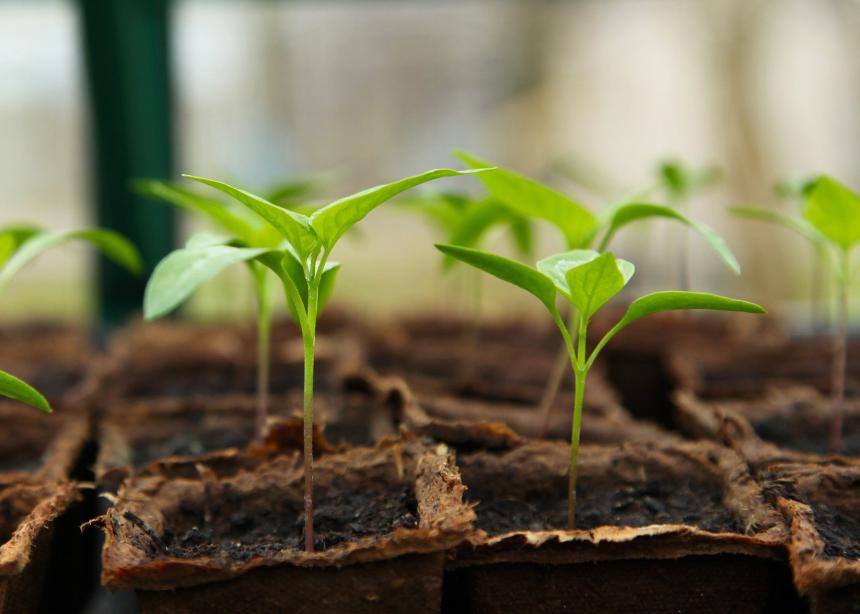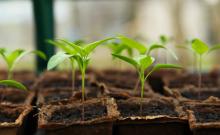I am writing this column on Mother’s Day weekend. As I weed flowerbeds, memories of my hardworking mothers and their gardens dance in my head. Gram Miller—Anna Estelle—grew up in the mountains of West Virginia, in a large family that was intimately acquainted with poverty. Growing food was necessary for survival. I remember her planting many varieties of beans or enlisting my equally hard-working grandfather to do so. Even after their family was grown, they planted huge fields of beans, a cash crop to carry them over should lean times come.
Gram Stapleton—Mary Almira—tended a large vegetable garden, along with chickens and pigs. But her passion was flowers, adorning her simple house and yard in bursting colour from spring till fall. She also made a “mean dish of dandelion,” as my aunt described it, picking the leaves before the plant flowered, and stirring it into a sweet and sour sauce of milk, flour and bacon. Both grandmothers lived “more with less” decades before the term worked its way into Mennonite cookbooks and ethics.
My mother—Sara Kathryn—also planted and harvested a large vegetable garden, although I think my father was the enthusiast. My mother was the command centre for food production. During summer and fall harvest, hundreds of bags of corn and beans, and hundreds of jars of tomatoes and peaches were stored by her efforts and the team she directed. I was one of the labourers in the field. I never acquired a love of weeding; green tomato worms, which I thought were ugly and scary, nearly did me in. Somehow through the legacy of these mothers, though, I am on my knees pulling weeds out of my little urban flowerbed, while memories bring them close to me.
Parents leave legacies, it’s true. These ones of my mothers and their gardens are fertile and satisfying to recall. Other legacies may be less life-giving—ones of wounding, neglect, mistreatment or abuse. On Mother’s Day I will lead the congregational prayer; we will remember and give thanks for our mothers, for the nurture and care they provided, for the legacies that live on through their children. We will also remember other-than-mother people who nurture, the aunties and uncles, the Sunday School teachers and pastors, the neighbours and coaches. And we will ask for God’s healing in strained and broken relationships, in recognition that not all legacies are kind or helpful.
The Apostle Paul has a word for us in II Timothy 1:6. Speaking to his spiritual son Timothy, he recalls the legacy of faith Timothy received from his mothers Lois and Eunice. Paul then urges him to fan into flame the gift of God that dwells within him. As we celebrate Mother’s Day and Father’s Day, as we recall the legacies of our grandparents, we are tending the teachings they passed on to us, whether that be the care of gardens or the living out of faith.
I pause over my little pile of dandelion greens, then on an impulse, scoop them up and carry them into the house, transferring them from weeds to food. The dark green leaves are bursting with nutrition and will make their way into salads and omelettes. I may not have a memory of how to make the wicked dandelion dish of my grandmother, but I can honour the tradition of gardening, and of receiving what the earth offers, as I remember those who have gone before.
Melissa Miller (familyties@mymts.net) has a passion for helping people develop healthy, vibrant relationships with God, self and others.
This article was updated on May 8, 2020 to include the photo.




Add new comment
Canadian Mennonite invites comments and encourages constructive discussion about our content. Actual full names (first and last) are required. Comments are moderated and may be edited. They will not appear online until approved and will be posted during business hours. Some comments may be reproduced in print.